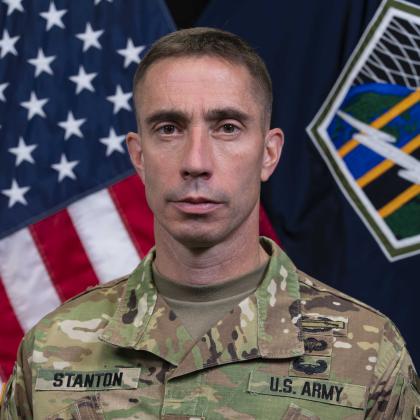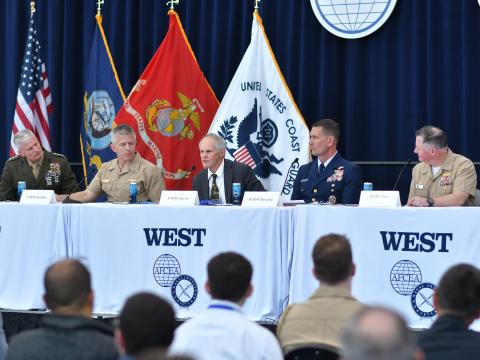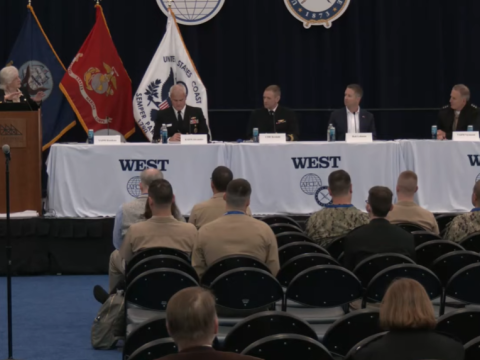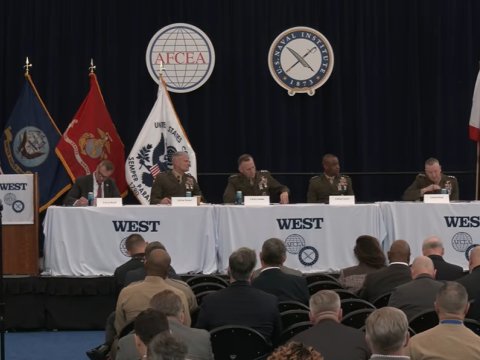Recruiting Cyber Soldiers From a Young Age
The Department of Defense is short 30,000 skilled cyber warriors, about 13% of its total manpower. While this deficit is expected to grow, many leaders work for the long term.
The skills these combatants require are scarce and need constant updating; making the job especially demanding.
“You cannot fake the funk in this business, if you don't have technical depth, you can't do the mission,” said Maj. Gen. Paul Stanton, commanding general of the U.S. Army Cyber Center of Excellence and Fort Gordon.
Hacking the Cyber Workforce Paradox, a panel at AFCEA's Technet Cyber 2023 in Baltimore on Tuesday, discussed possible solutions to the talent shortage in their field.
Leaders from the cyber branches of the military services discussed the difficulties they face in a tight labor market in competition with the private sector for qualified personnel.
Training and education pipelines, where young potential candidates receive progressive training and engagement, is among the hopes of a future solution to the shortage. To engage future candidates, partnerships with educational institutions were fostered. Each leader capitalized on a different opportunity, producing a variety of experiences.
“We did it with community colleges at Scott Air Force Base at the time, they were transitioning from this kind of agricultural area that had been out there you see in the cornfields, many of the mechanical areas that they have are going out of business, and we were growing a cyber defense squadron out there,” said Brig. Gen. Terrence Adams, director, Cyberspace Operations and Warfighter Communications, U.S. Air Force.
Gen. Adams explained how the Illinois area where the base is located is capitalizing on the job opportunities brought by the arrival of cyber warfare positions. Gen. Adams engages potential recruits in local higher education institutions and presents service as a novel avenue for career development.

For the representative of the Army, recruitment happened earlier.
“What we're doing now at Fort Gordon is we've partnered with the superintendent of Columbia County Schools, Dr. Flint, to develop what we call a K through 12 curriculum for a Cyber Citizen,” Gen. Stanton told the audience.
The Georgia county where his facility is located collaborates with grade teachers to familiarize students with computer science to foster interest in a future cyber warfare career.
The Cyber Citizen curriculum imparts knowledge that everyone should have to keep the country digitally safe and will be integrated into the regular study program in 2024, according to Gen. Stanton.

You cannot fake the funk in this business
The speakers agreed that internships are an efficient way to train and prepare future cyber warriors as well as a means to create a positive word of mouth message within the social network of the participant.
A key element for these internships is cooperation with colleges and companies, according to Mark Gorak, principal director for resources and analysis, Office of the Chief Information Officer, Department of Defense.
While retention was an issue touched on by all panelists, one spoke on the need to pursue it with wisdom.
“Retention is not necessarily bad, but it's not necessarily good either. I don't want to retain everybody, I want to retain the best,” Gorak said.
Shaun McCullough, SANS Institute certified instructor, also participated in this panel and AFCEA Cyber Workforce Subcommittee chair Capt. Glenn Hernandez, USCG (Ret.), served as moderator.




Comments